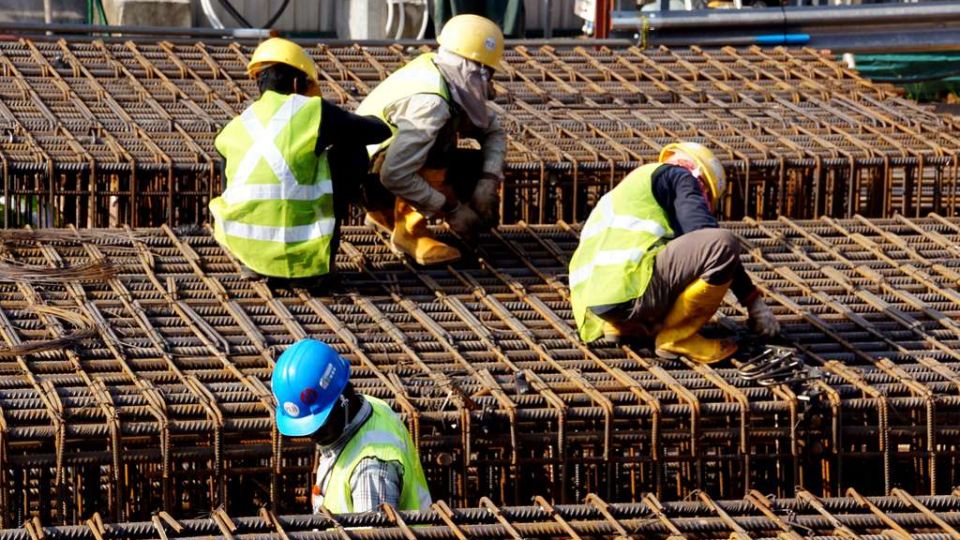Malaysia intends to bring in 500,000 workers from 15 different Asian countries to solve its labour shortage issues in less-favourable sectors like plantations, agriculture, and construction.
The Covid-19 outbreak has caused over 700,000 foreign employees to return to their home countries, according to Human Resources Minister V. Sivakumar, therefore the labour crisis needs to be resolved right away in order to prevent any negative effects on the economy.
However, human rights activists have argued that the government must halt this process and instead focus on improving the working conditions of migrant workers who are already in the country, which does not seem to be getting better.
World Bank data indicates that there are around 2.9 to 3.3 million migrant workers in Malaysia, of which roughly 1.5 million have irregular employment.
The remaining millions are undocumented, without protection. But most of them are employed and continue to make a significant contribution to the economy and the nation’s future.
In fact, the US State Department downgraded Malaysia to Tier 3, which is the worst category, in its 2020 Trafficking in Persons Report. It also imposed punitive measures on firms allegedly involved in slave labour by banning imports from glovemakers Top Glove and Supermax, as well as two major palm oil conglomerates.
Malaysia remains in Tier 3 as of last year.
The secretary-general of Socialist Party Malaysia (PSM), Sivarajan Arumugam, told Coconuts the conditions for migrant workers have not improved despite many complaints from workers and civil society.
“Their grouses have not been rectified. Thus PSM would strongly call for a halt on all migrant labour intake until all reforms are executed,” he said.
PSM often works on labour rights issues affecting both local and foreign workers. It has also helped some of these individuals win court cases against their employers.
Sivarajan also highlighted that, during former minister M. Kulasegaran’s time as the Human Resources Minister (MOHR) under Pakatan Harapan, he had instructed an independent commission to study the situation of migrant workers and submit reports to the government.
However, he said the report has been kept under wraps.
“We reiterate that the government should focus on implementing the proposed reforms proposed by the government’s own reports and other CSO’s instead of continuing to bow down to the pressures of the employers that they are crying that they need migrant labour urgently,” he added.
Sivarajan shared with Coconuts a copy of the reform proposal.
Some of these proposed reforms include only allowing the MOHR to manage and monitor all matters relating to migrant workers, speedy initiatives and policies to eradicate the involvement of private agents and companies in the recruitment and supply of workers, and the abolishment of debt bondage by removing recruitment fees charged to workers.
Glorene Daas, executive director of Tenaganita, a human rights non-profit organisation, said the ministry needs to address the lack of personnel at the labour department in order for it to carry out labour inspections more efficiently.
“During high-level government meetings between the labour department and the ministry, the issue is always that they do not have enough personnel, so what are we doing about it is the next question. If we want to address this effectively and seriously, they need to think through how to increase the labour department’s personnel,” she said.
Meanwhile, Su Shern, executive director of Project Liber8, echoed Sivarajan’s concerns.
“I think first we need to acknowledge that the exploitation of migrant workers in Malaysia is still not being addressed. The fact is that migrant workers are still facing long working hours, exploitative conditions, withholding of wages, etc. and I think these are things that we hear and see all the time,” she told Coconuts.
Project Liber8 is a non-profit organisation dedicated to empowering youth to take action against human trafficking, forced labour, exploitation and discrimination among trafficked victims, migrant workers and refugees.
“So what is the government doing currently to ensure we are minimising this and holding the people responsible accountable?” Su said.
Su said she would really love to see the government speak to relevant parties that are working on migrant issues as well as be present on the ground to understand the lived realities.
“Over the years, we’ve seen the government really making an effort in forced labour and trafficking issues but what is equally as important is the priority of ensuring these laws and policies are executed properly too,” she added.
MOHR Minister V. Sivakumar has refused to comment on the matter when contacted by Coconuts.
ALSO CHECK OUT:




